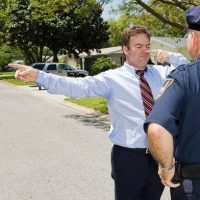Double Refusals, Temporary Alcohol Restricted Licenses, And More Complexities Of South Carolina’s DUI Laws

It is obvious that drunk driving is a big problem in South Carolina. Despite its relatively small size, South Carolina consistently ranks among the top ten states in number of DUI accidents, and last year, 285 people throughout the state died in alcohol-related collisions. Proponents of stricter DUI laws say that one of the causes of the problem is that South Carolina laws have too many loopholes, making it hard for prosecutors to prove that the driver was under the influence of alcohol at the time of the accident or traffic stop, and therefore harder to impose penalties, such as driver’s license suspension or court-ordered substance use disorder treatment, which would deter future drunk driving incidents. Since securing a conviction in criminal court requires the prosecution to persuade the jury that the defendant is guilty beyond a reasonable doubt, these legal loopholes probably mean that the number of people convicted of DUI is far lower than the number pulled over on suspicion of drunk driving or involved in alcohol-related crashes. In civil cases, you only have to show a “preponderance of the evidence,” which is a legal term meaning “more likely than not” that the driver who hit you acted negligently. Therefore, it is much easier to collect damages in a South Carolina car accident lawsuit without knowing the driver’s exact blood alcohol content (BAC) at the time of the accident than it is to secure a DUI conviction in criminal court with the same evidence.
The Trouble With Double Refusals
South Carolina law allows people stopped for DUI to refuse to take field sobriety tests, such as walking on an invisible tightrope of the ground or touching your finger to your nose while looking straight ahead. This is reasonable, because such tests are not very accurate; they are difficult for everyone except the healthiest people, whether or not they are under the influence of alcohol. The bigger problem is that you can also refuse breathalyzer tests, which measure your BAC; anything above 0.08 is considered too drunk to drive, and the penalties become more severe if your BAC is 0.15 or higher.
What happens if you refuse the field sobriety test and a breath test? How can anyone prove that you were driving drunk? The incident on Memorial Day weekend, when Charleston City Councilman Harry Griffin was pulled over for DUI but refused the breath test and the field test and then went on his way without consequences, highlights the problem with double refusals.
Senate Bill 28 seeks to expand the use of ignition interlock devices, which require a driver to take a breath test using a device attached to the car’s ignition every time they start the car. South Carolina requires the use of these devices for people with temporary alcohol restricted licenses. One of its proposals is to require the use of these devices for defendants who refused breath tests and field tests at the time of their arrest and are currently awaiting trial in a DUI case.
Let Us Help You Today
A Columbia car accident lawyer can help you if you were injured in a car accident with a drunk driver, even if the driver refused a breath test. Contact The Stanley Law Group for help.
Source:
abcnews4.com/news/local/madd-wants-stronger-dui-refusal-laws-following-councilman-arrest
